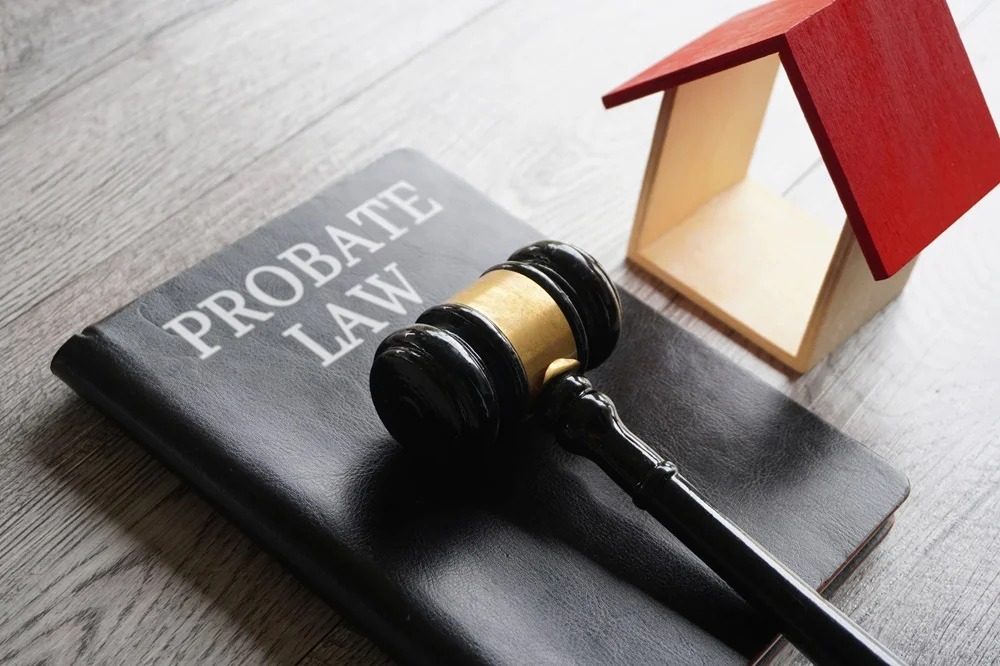If you’re handling an estate that includes out-of-state property, you’ve probably found yourself asking, what assets have to go through ancillary probate in Texas? It’s a valid and important question—especially when you’re already managing the emotional and legal weight of someone’s passing. The last thing most families expect is a second probate case in a different state just to transfer property. Yet in Texas, if the deceased owned certain types of assets here while living elsewhere, that’s exactly what can happen.
In this detailed guide, we’ll walk you through what ancillary probate means, how it works, and more specifically, what assets have to go through ancillary probate in Texas. We’ll also unpack the role that title, deed, and ownership type plays in the process. And because this is Texas we’re talking about, we’ll pepper in real-life stories and tips to help you navigate this sometimes-overlooked legal hurdle like a pro.

What Is Ancillary Probate in Texas?
Let’s start with the basics. Ancillary probate is a legal process that occurs when a person dies owning property in a state other than the one where their primary probate estate is being administered.
Say someone dies in California but owns a ranch or mineral rights in Texas. Their primary probate—the one dealing with their will and general assets—will be handled in California. But because Texas real estate falls under Texas jurisdiction, the executor must open a secondary probate case in Texas, which we call “ancillary probate.”
This process allows the Texas courts to formally recognize the will (or estate plan) and legally transfer Texas-based assets to the rightful heirs.
Why Texas Requires Ancillary Probate
Texas law requires ancillary probate because it has jurisdiction over any real property located within its borders. Title to land, oil and gas rights, or even certain business interests cannot be transferred legally without a court order from a Texas court.
So, if you’re dealing with assets like real estate, mineral rights, or business ownership registered in Texas, you’re likely stepping into ancillary probate territory—even if you’re already navigating probate elsewhere.
What Assets Have to Go Through Ancillary Probate in Texas?
This is where it gets specific. Not every asset falls under ancillary probate—but several key categories do, especially when title or deed is involved. Here’s a breakdown of the most common types.
Real Estate Located in Texas
This is the big one. If the deceased owned any kind of real estate in Texas, including:
- A residential home
- Land or lots
- Investment property
- Agricultural land
- Ranch property
…then those assets must go through ancillary probate in Texas.
Take the case of Don, a Nevada resident who passed away owning a vacation property near Fredericksburg, TX. His family had to open an ancillary probate case in Gillespie County just to transfer the deed to his heirs—even though the primary probate was already underway in Nevada.

Oil, Gas, and Mineral Rights
Texas is rich in natural resources, and mineral rights ownership is common—even among out-of-state residents who inherited them. If the deceased held:
- Surface rights
- Mineral interests
- Royalties
- Leasehold interests
…these all count as Texas-based assets, and they must go through ancillary probate. Oil companies will not pay out royalties or reassign lease rights until proper court documentation is filed in a Texas probate court.
Business Interests Registered in Texas
If the deceased owned a Texas-registered LLC, partnership, or sole proprietorship, and it wasn’t structured to pass automatically upon death (like with a transfer-on-death clause or living trust), it becomes subject to ancillary probate.
For example, Maria died in Arizona but had a 50% share in a small boutique in Austin. The executor of her estate couldn’t transfer her ownership interest—or collect her share of profits—until they filed an ancillary probate in Travis County.
Vehicles Titled in Texas
It may surprise some, but vehicles registered in Texas sometimes fall into the ancillary probate bucket. While the DMV does allow for simplified transfers in some cases, anything without a surviving joint owner or payable-on-death designation can require a court order.
The key detail? The title is what triggers the need for ancillary probate.
Property Held Solely in the Deceased’s Name
Assets held solely in the deceased person’s name, without a co-owner or designated beneficiary, will almost always require ancillary probate in Texas if located in the state. Joint ownership with right of survivorship, payable-on-death (POD) accounts, or trusts often avoid this.
So, if your loved one held assets individually—whether a storage unit lease or undeveloped land—expect to go through the formal process.
What Title and Deed Types Affect Ancillary Probate in Texas?
Understanding how title and deed types work can help you determine if ancillary probate is necessary—or if it can be avoided. Let’s break it down.
Sole Ownership
When the title to property is in one person’s name only, and there is no co-owner or legal heir named via survivorship, ancillary probate in Texas is required to transfer that asset.
Tenancy in Common
If the deceased owned property with someone else as tenants in common, their share becomes part of their estate upon death—not the other owner’s. So yes, this setup also requires ancillary probate if the property is in Texas.
Joint Tenancy with Right of Survivorship
This is one of the few ownership structures that avoids ancillary probate. When one owner dies, the surviving joint owner automatically inherits the property.
Community Property with Right of Survivorship
Spouses in Texas can hold title this way, and it usually avoids probate altogether—ancillary or otherwise. If your spouse owned Texas property this way with you, you may not need probate at all.
Transfer-on-Death (TOD) Deeds
Texas allows property owners to file a Transfer-on-Death Deed, which names a beneficiary who will receive the property automatically upon the owner’s death. This deed structure avoids ancillary probate and is a smart tool in estate planning.

Real-Life Story: Avoiding Ancillary Probate with the Right Planning
Consider the story of Harold, who lived in Colorado but owned a cabin near Waco. A few years before he passed, his estate planning attorney suggested recording a Transfer-on-Death Deed for the Texas property.
When Harold died, his daughter inherited the cabin instantly—no ancillary probate needed. That one document saved her months of legal hassle and thousands in court costs.
How to Start Ancillary Probate in Texas
If you’ve determined that ancillary probate is required, here’s a general roadmap to follow. Each step involves specific legal documentation, deadlines, and coordination between jurisdictions—so staying organized is crucial. Having a knowledgeable probate attorney in Texas can also speed up the process and help you avoid costly delays.
Step 1: Obtain Certified Copies of the Original Probate
You’ll need a certified copy of the will and the order admitting the will to probate (or letters testamentary) from the primary probate state. These documents prove to the Texas court that the will has been lawfully admitted elsewhere and that the executor has legal authority. Make sure to obtain multiple certified copies, as they may be needed for court filings, title transfers, and financial institutions.
Step 2: File Application for Ancillary Probate
The executor or attorney files an application in the Texas county where the asset is located. This includes legal paperwork and sometimes a hearing. The filing must comply with local court rules and may require notices to interested parties, such as heirs or creditors. Accuracy and completeness are key—any missing documents can stall the case or prompt a rejection by the court.
Step 3: Secure Court Approval
Once the court accepts the original will or probate order, they’ll issue Texas letters testamentary or letters of administration, which authorize the transfer of Texas property. The court may require a brief hearing, particularly if there are disputes or unclear filings. Once approved, the executor officially gains Texas-based authority to act on behalf of the estate.
Step 4: Transfer the Assets
Using the court order, the executor can now update deeds, change titles, collect funds, and wrap up any loose ends in Texas. This may include filing with the county recorder’s office, notifying mineral rights lessees, or submitting paperwork to the DMV. Once assets are legally transferred, the ancillary probate can usually be closed with a final filing or affidavit.

Can Ancillary Probate in Texas Be Avoided?
Sometimes, yes. Texas offers a few strategies that help families bypass ancillary probate altogether:
- Use of trusts to hold out-of-state property
- Transfer-on-Death Deeds for real estate
- Joint ownership with right of survivorship
- Designated beneficiaries on accounts and business interests
The key is planning ahead. Without these tools, your family may be forced into multiple probate cases across state lines.
Final Thoughts: Understanding What Assets Have to Go Through Ancillary Probate in Texas
So, what assets have to go through ancillary probate in Texas? In short—any property located in Texas that lacks a clear, automatic method of transfer. That includes real estate, mineral rights, business interests, and even vehicles, depending on how they’re titled.
Key Takeaways:
- Ancillary probate is required when someone dies owning property in Texas but resides elsewhere.
- Assets that commonly go through ancillary probate include real estate, oil rights, and business shares.
- Title and deed structure—like sole ownership or tenancy in common—can trigger probate.
- Tools like Transfer-on-Death Deeds and trusts can help avoid ancillary probate.
- Proper estate planning is the best way to protect your heirs from extra legal steps.
Whether you’re settling a loved one’s estate or preparing your own, understanding what assets have to go through ancillary probate in Texas can save you time, money, and stress. When in doubt, consult with a Texas probate attorney who can review your unique situation and offer tailored advice.








